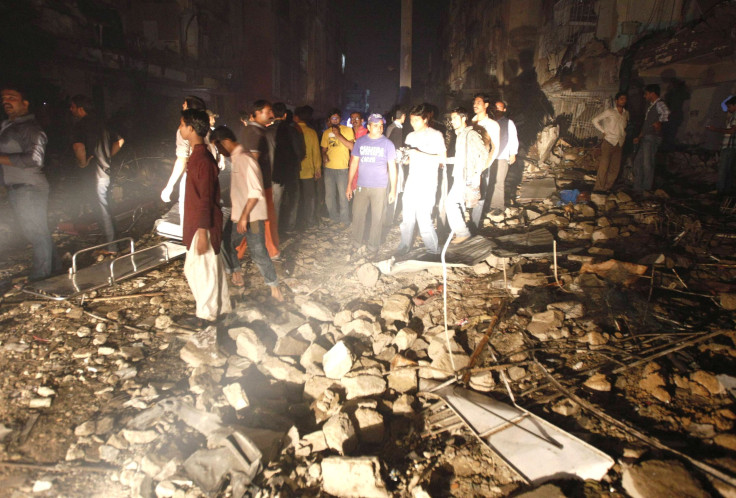Dozens Killed In Karachi Bombing Targeting Shiites

A suspected suicide bomber attacked Shi'ite Muslims as they were leaving a mosque in Karachi, Pakistan, Sunday, killing scores of people, in another signal Sunni militants are escalating sectarian attacks.
India’s IBN News reported that 48 people were killed, citing local authorities.
No group has claimed responsibility.
"It's like doomsday to me. I was watching television when I heard an explosion and my flat was badly shaken," witness Mariam Bibi told Reuters.
"I saw people burning to death and crying with pain. I saw children lying in pools of their own blood and women running around shouting for their children and loved ones."
"It was a powerful blast on a congested Shi'ite-dominated area," said senior police official Shabir Ahmad Sheikh.
Senior city official Hashim Raza said at least 45 people had been killed and 149 wounded in the blast in Pakistan's biggest city.
The first blast occurred outside an imambargah (prayer hall) in the Abbas Town area around 7 p.m. as people were leaving after prayers, IBN reported. The second explosion went off within 10 minutes, local residents said.
Military offensives and U.S. drone strikes against the Taliban have reduced the number of suicide attacks on Pakistani government and military targets over the past year.
But Sunni groups, most prominently Lashkar-e-Jhangvi (LeJ), have escalated attacks against Shi'ites, whom they consider heretics.
Fayaz Leghari, the provincial police chief, told local news media that the city police force had been on alert in anticipation of such attacks given the Sunni militant campaign against Shi’ites, The New York Times reported.
Bombings targeting Shi'ites have killed nearly 200 people in the western city of Quetta alone since the start of the year.
In 2012, sectarian attacks and clashes climbed by 47 percent to 208, according to the Pak Institute for Peace Studies.
While the Quetta carnage grabbed world attention, a Reuters inquiry into a lesser known spate of murders in Karachi suggests the violence is taking on a volatile new dimension as some Shi'ites fight back.
Pakistani intelligence agents say the LeJ has become a major security threat in Pakistan, which is also struggling with a fragile economy, dilapidated infrastructure and widespread poverty.
Shi'ite frustrations are rising with each blast. Shi'ites fired weapons in the air on Sunday night in Karachi, a bustling metropolis plagued by ethnic and political violence and crime.
"The explosion was so massive it jolted the entire area," said witness Ali Reza. "Two flats and nearby shops caught fire after the explosion and balconies of various buildings collapsed."
© Copyright IBTimes 2024. All rights reserved.





















